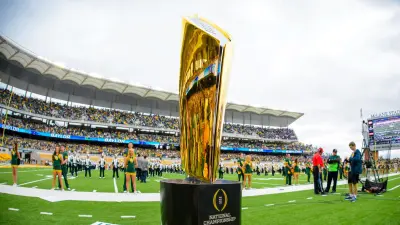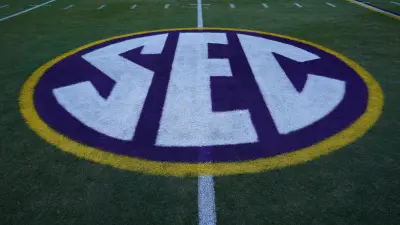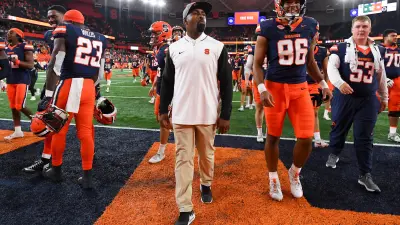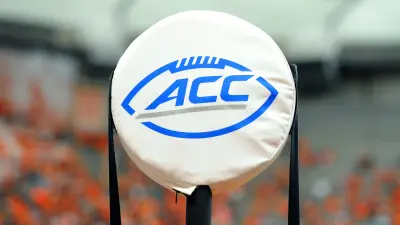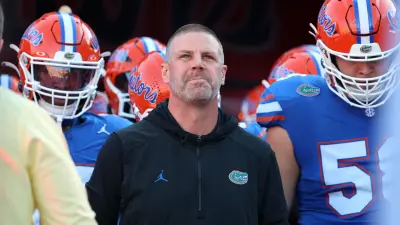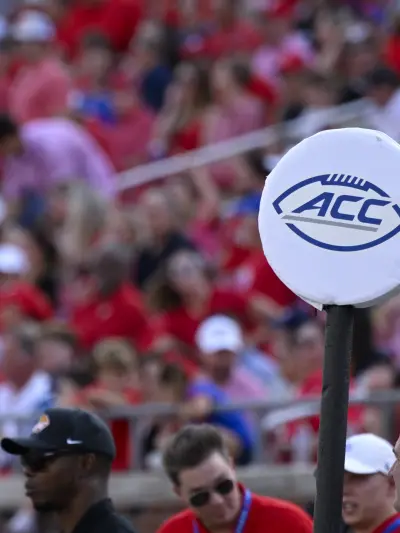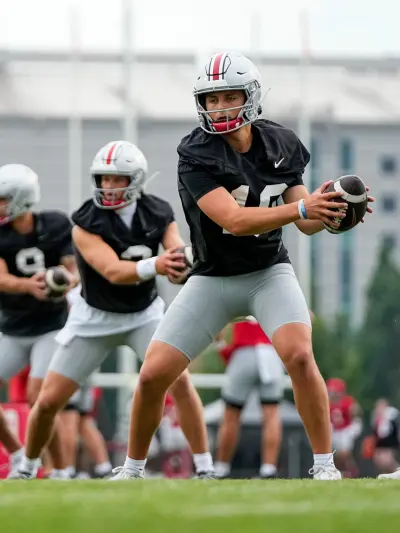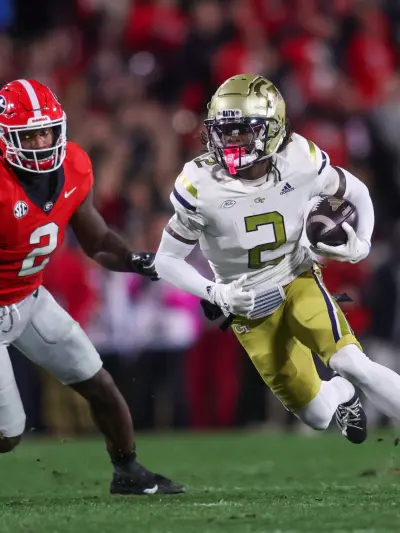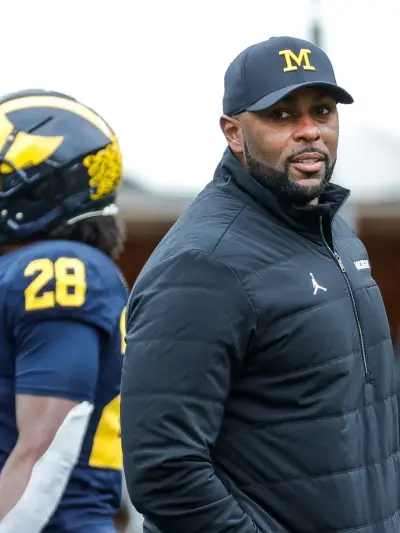By Rock Westfall
The regular season era of college football is ending but could leave a trail of destruction this weekend and beyond.
The End of the Regular Season Era and Golden Age
College Football is God’s Game for numerous reasons, but none more than its regular season. No sport has a more impactful regular season than college football. The genius of its regular season is that it served as a three-month playoff. But the greatness of that era ends on Saturday.
Starting in 2024, college football will have a 12-team playoff that could be expanded again in the future. The reason, of course, is money. The new format is expected to be worth over $2 billion. But this brings up the question of what good is gaining the world at the cost of a sport’s soul?
A Playoff Portent
The first dent in the sacred college football regular season was the expansion to a four-team playoff in 2014. With two extra teams allowed in, a previously non-existent margin for error was born while conference championship games started losing value. Once, there was nothing more worthless than the college basketball conference tournaments. But college football conference championship games said, “Hold my beer!”
The best example was in 2017 when the Georgia Bulldogs beat the Auburn Tigers 28-7 in the SEC championship game. On that day, the Alabama Crimson Tide had their feet up, watching the action on TV. Yet Alabama went on to defeat Georgia in the national championship game 26-23, despite the fact they failed to qualify for the SEC title matchup.
More Sports News
In 2021, the Crimson Tide handily defeated Georgia 41-24 in the SEC championship game. Alabama’s reward was to face Georgia in the national championship game. The Bulldogs took full advantage of the mulligan in a 33-18 win.
Last year, the Ohio State Buckeyes were routed by the Michigan Wolverines 45-23 to be eliminated from the Big Ten championship game. Yet Ohio State still got into the College Football Playoff, nearly losing to Georgia 42-41 in the semifinal, one point and a missed field goal from the national championship game.
Yet still, college football has maintained the most meaningful regular season in sports, by far, through these ten years of the four-team playoff. Next year, its full-value regular season will vanish.
https://twitter.com/LoganMBooker/status/1671542167179763715
Potential Future Damage to Rivalry Week and Conference Title Games
This weekend brings “Rivalry Week,” the climax of the college football calendar. Ancient foes battle, most of whom have no shot at the national title. But records are thrown out the window for matchups that go back generations.
The bragging rights and trophies associated with these games were once all that mattered. Coaching careers were saved or ended on Rivalry Week. The intensity could not be matched by any sport.
But in the years to come, Rivalry Week could potentially resemble NFL preseason games. Consider what happened last weekend to Florida State QB Jordan Travis. The FSU signal caller suffered a leg injury in a meaningless game against FCS North Alabama.
Now, the prospects of Florida State making the College Football Playoff are in peril. A loss at Florida is all the CFP committee needs to pick another team that still has its top QB. Do you think Florida State head coach Mike Norvell wishes he had sat Travis out last week? Other coaches have taken notice and will never forget. Just watch.
Now, consider that 12 teams make the field next year. Out of that dozen, many programs will know if they are in or out by Rivalry Weekend. Why bother risking injuries to key players that could harm a school’s chance in the CFP? NFL teams frequently hold out top players from their regular season finales for that very reason.
Image Ohio State vs. Michigan if both teams are already assured playoff spots. Or the same with Auburn vs. Alabama. Those games would no longer carry their importance or historic relevance because of the CFP. Thus, the value and intensity of those games will dramatically drop.
Additionally, the already declining value of conference championship games will crash.
https://twitter.com/espn/status/1726658571746636281
College Football Was Never Meant to Be the NFL
There is nothing more nauseating than when the NCAA Conclave of Clods waxes poetic about the “best interests of the student-athletes.” But the ignoramuses who claim that college football should be more like the NFL rank right up there. Sadly, they have gotten their wish.
All North American pro sports sold their souls and integrities long ago. College basketball is now a one-month product, March Madness. Major League Baseball’s 162-game regular season has been rendered worthless. The NHL was always a playoff sport. NASCAR went from “the sport of the future” to a badly damaged niche brand. The NFL added more playoff teams at the expense of regular season value. And the NBA long ago traded focus on the hardwood for look-at-me courtside celebrities and pop culture, not to mention a play-in round.
College football was a refuge from all of that. Its regular season was of full value. Its traditions and rituals were unmatched. But in 2024, college football will move closer to the rest. It has sold out and forsaken its unique place in sports.
So, we say farewell to the greatest and most valuable regular season in sports. And warn all to be careful of prayers answered and what you wish for.
Don’t Be So Sure CFP Wants Michigan Out
There is a theory that if Ohio State beats Michigan in “The Game” on Saturday, the College Football Playoff committee would have its excuse to get rid of Michigan, using that defeat as a beard to punish the Wolverines for the Spygate scandal.
Don’t be so sure. Why? Well, television, of course. The currently suspended coach, Jim Harbaugh, will be allowed to coach Michigan in all postseason games. TV execs will salivate at the potential of a rematch with Harbaugh going up against his hated arch-rival, coach Ryan Day of Ohio State. And those bean counters aren’t wrong. Ratings would be through the roof.
Less Popular Brands in Harm’s Way for 2023 CFP
The Florida State Seminoles are 11-0 and play at 5-6 Florida on Saturday. But without Jordan Travis and Florida desperate to gain bowl eligibility with a win, there is the potential that the Gators (+6.5-point dogs) could spring the upset. However, Florida will also be without its starting QB, Graham Mertz.
Still, stranger things and bigger upsets have happened. Florida State has played a comparatively weaker schedule than other top CFP contenders. If they lose to Florida or next week in the ACC championship game against dangerous 10-1 Louisville, it’s likely to be fatal.
In the same way, the Texas Longhorns can’t afford a loss this week on Senior Day against the resurgent and bowl-bound Texas Tech Red Raiders or in the Big 12 championship game.
Meanwhile, the Oregon Ducks and Washington Huskies are on a collision course for a rematch in the Pac-12 championship game. Washington beat Oregon on October 14, 36-33. But if Oregon loses the Civil War to Oregon State, the upstart Arizona Wildcats could fill the void. And a Washington loss to the Washington State Cougars in this week’s Apple Cup would almost certainly kill its CFP hopes, regardless of its result in the Pac-12 title game.
Thus, the potential of Ohio State, Michigan, Alabama, and Georgia all advancing to the CFP, regardless of what happens in the next two weeks, is quite real. As is the desire of many in the TV business for it to happen.
